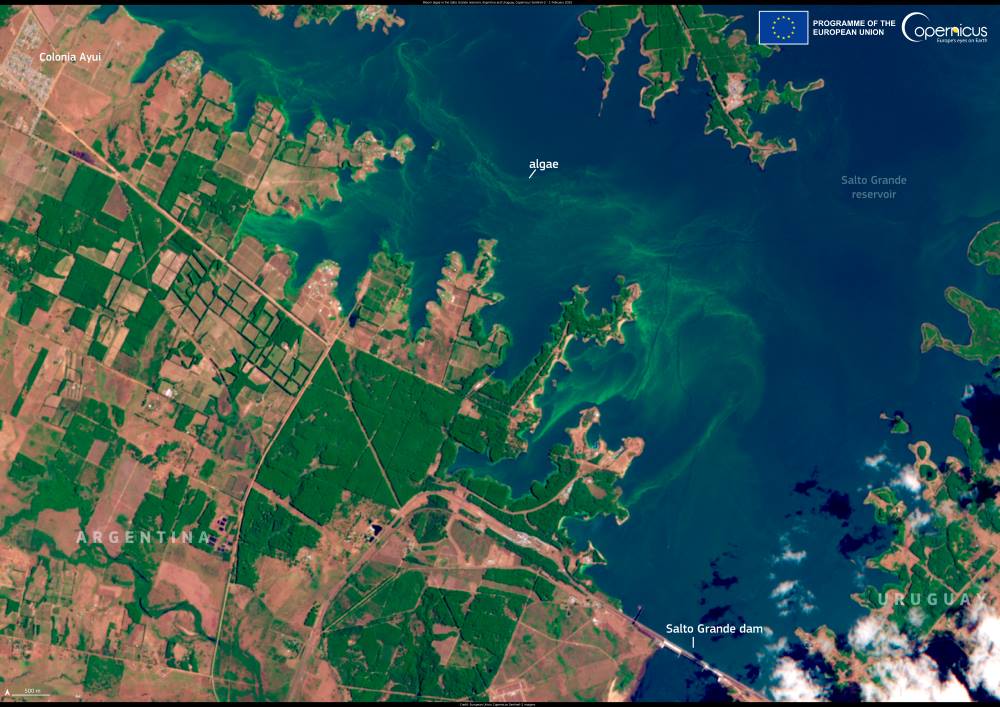A striking algal bloom has turned the waters of Lake Salto Grande, at the border of Argentina and Uruguay, a vivid green.
This Copernicus Sentinel-2 image, captured on 1 February 2025, highlights the extent of the bloom, which has affected local wildlife, including capybaras that have been seen with algae-covered fur.
The phenomenon, linked to eutrophication, is intensified by high temperatures, stagnant water, and excessive nutrient runoff from agriculture, wastewater, and industry. The increase in cyanobacteria has made parts of the reservoir unsuitable for bathing and raised concerns about potential health risks.

Monitoring services like Copernicus Sentinel satellites and the Copernicus Marine Service provide critical data to track these events, supporting policies to protect ecosystems and human health. Scientists analyze indicators such as chlorophyll-a levels, oxygen concentration, and nutrient presence to assess water quality and eutrophication trends. These efforts contribute to broader environmental strategies, including the EU’s Marine Strategy Framework Directive and the United Nations’ Sustainable Development Goals.
Featured image credit: European Union, Copernicus Sentinel-2 imagery



